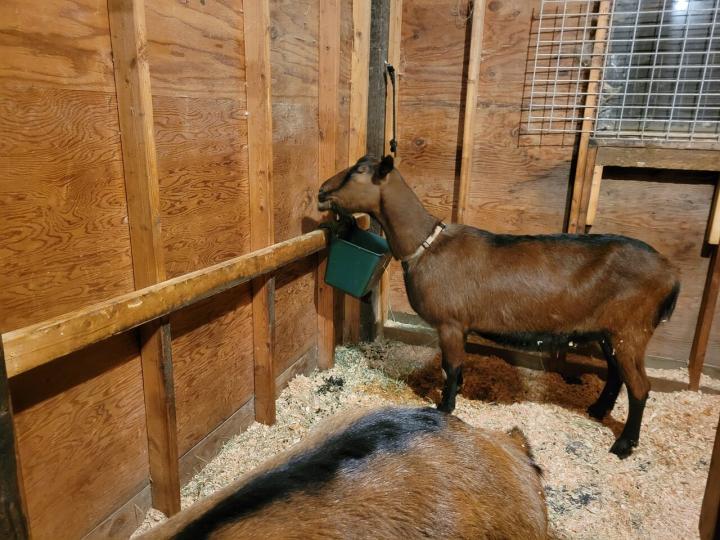I wanted to share this UC treatment. My oldest wether turned 11 this February (mostly retired from packing, still comes along on hikes.) One morning in Feb I immediately noticed symptoms of UC (heaving sides to attempt to urinate, urine dribbling out at times instead of steady stream.) Got him to the vet same day expecting he'd have to have surgery.
Since he was still peeing, the vet said he would like to try medication that may allow him to pass the stones on his own - a method he has had good success with.
Treatment was (240 lb goat):
*Two injections at time of visit: Acepromazine, Midazolam
*Acepromazine tabs 25mg - 1x daily for 30 days
*Phenazopyridine tabs daily - I think this was 3x/day for about 2 weeks
*1/8 teaspoon salt 2x/day - I did this for 30 days, now have him down to 1x/day. This was to keep him drinking even tho I always have salt blocks out also.
In my case this treatment appears to have been successful, so far - 3 months since the incident. He is peeing great.
There was a discussion of diet - the vet found nothing wrong. I decided to make some changes anyway. For the last 5 years I have been feeding one handful of Purina Equine Senior "grain" in the evenings - this has the proper calcium/phosphorus ration and a lot of beet pulp - quit that anyway. I went back to wetting down his hay nightly - quit that a year ago as I was only doing this for another goat that had asthma type symptoms. Rest of diet is chaffhaye and orchard grass hay, a bit of soaked orchard grass pellets. I had been giving ammonium chloride 1x/month (it is also in the minerals I have out.) Increased this to 2x/mo for 3 days. Added back ACV to water occasionally.
Do not know what type of stones they were. Vet's advice was "keep him drinking" as the best ongoing treatment and it possibly just could be age related.
Since he was still peeing, the vet said he would like to try medication that may allow him to pass the stones on his own - a method he has had good success with.
Treatment was (240 lb goat):
*Two injections at time of visit: Acepromazine, Midazolam
*Acepromazine tabs 25mg - 1x daily for 30 days
*Phenazopyridine tabs daily - I think this was 3x/day for about 2 weeks
*1/8 teaspoon salt 2x/day - I did this for 30 days, now have him down to 1x/day. This was to keep him drinking even tho I always have salt blocks out also.
In my case this treatment appears to have been successful, so far - 3 months since the incident. He is peeing great.
There was a discussion of diet - the vet found nothing wrong. I decided to make some changes anyway. For the last 5 years I have been feeding one handful of Purina Equine Senior "grain" in the evenings - this has the proper calcium/phosphorus ration and a lot of beet pulp - quit that anyway. I went back to wetting down his hay nightly - quit that a year ago as I was only doing this for another goat that had asthma type symptoms. Rest of diet is chaffhaye and orchard grass hay, a bit of soaked orchard grass pellets. I had been giving ammonium chloride 1x/month (it is also in the minerals I have out.) Increased this to 2x/mo for 3 days. Added back ACV to water occasionally.
Do not know what type of stones they were. Vet's advice was "keep him drinking" as the best ongoing treatment and it possibly just could be age related.







